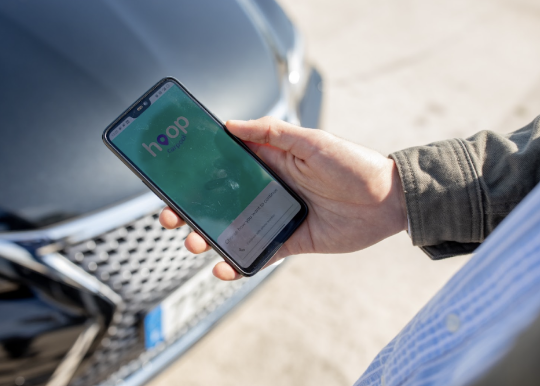
Hoop Carpool Presents Projects and Discusses Challenges for Sustainable Mobility in the Region

Companies such as Hoop Carpool operate in the region to offer mobility solutions that allow, among other things, to decongest cities through safe mechanisms because they only allow carpooling with members of the same community or the same company.
In addition, it is an economical solution that also improves mobility emissions by reducing the use of vehicles.
Latin America is looking to implement this trend in the vehicle fleet, since it has given very good results in large European metropolises, burdened by traffic congestion.
In this regard, Marisol Quezada, Country Manager of Hoop Carpool Mexico, held a conversation with the Latam Mobility team to evaluate the sustainable mobility scenario.

Current Analysis
“Traffic congestion, pollution, lack of adequate infrastructure for public transportation, are among the biggest challenges facing Latin America,” said Quezada.
However, with the obstacles to overcome, the Hoop Carpool executive believes that in recent years there is evidence of more awareness of the importance of environmental sustainability.
“This has generated the need for people and institutions to take action to address such problems and this is why we now see how a series of initiatives and policies are being implemented to encourage more sustainable mobility, where people are incentivized to implement new sustainable modes of transportation, such as bicycles and electric mobility, the carpool,” she explained.
Read also: Clipp MaaS, Hoop Carpool and Inteia Showcase Urban Mobility Solutions for the Future
Hoop Carpool Projects
On the company’s current affairs, Quezada stressed that they are developing projects that reduce Scope 3 emissions.
“Carpool, incorporation of Carpool in companies and universities to facilitate the mobility of people in their daily commutes through shared mobility, where we optimize the available seats for people, to reduce the number of cars in circulation and thus CO2 emissions. At the same time, we get people to share expenses and save time in their commutes,” she explained.
She stressed that another project is to help institutions encourage people to opt for more sustainable mobility alternatives in addition to the carpool.
“People should take into account different alternatives, such as cycling, walking, using public transportation or any other means that has a positive impact on the environment,” said Quezada.
She assured that once people change their mobility habits, it is the same institutions that award prizes and recognitions for this contribution.
“To achieve this goal, at Hoop carpool we launch awareness campaigns that motivate people to contribute to sustainable mobility,” she said.
What is needed to accelerate the transition?
On the challenges to massify sustainable mobility, Quezada considers it fundamental to generate a change of mentality and habits in people.
“The infrastructure of cities must be designed to involve other mobility alternatives and not cities designed only for private vehicles,” she noted.
She stated that another barrier is the lack of promotion and dissemination of the different clean modes of transportation, in addition to the high costs of electric mobility, which increase inequalities in access to sustainable transportation options.





